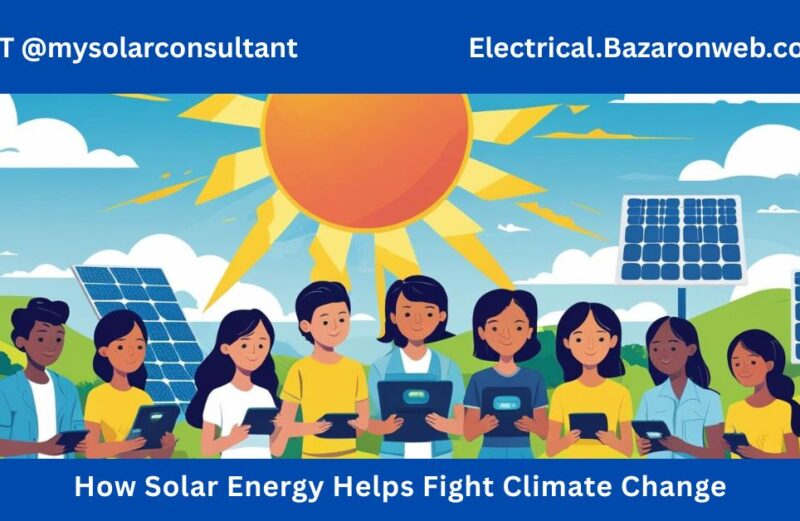By Ankit Srivastava – Electrical Engineer & ESG/Sustainability Enthusiast
As the world confronts the accelerating impacts of climate change—rising temperatures, extreme weather, and environmental degradation—solar energy has emerged as one of the most powerful tools in our global sustainability toolkit.
With a background in Electrical Engineering and experience at a Global ESG and sustainability consulting firm, I’ve seen how clean energy solutions, especially solar, are transforming not just our power systems, but our path to a more sustainable future.
🌍 Climate Change: The Energy Connection
Over 75% of global greenhouse gas (GHG) emissions come from the energy sector—mainly from burning fossil fuels like coal, oil, and natural gas for electricity and heat. These emissions trap heat in the atmosphere, leading to global warming.
To limit temperature rise and meet global targets (like those in the Paris Agreement), we must rapidly shift to low-carbon and renewable energy sources.
☀️ Why Solar Energy Is a Game-Changer
1. Zero Emissions During Operation
Once installed, solar panels produce electricity without emitting CO₂ or other greenhouse gases. Each kilowatt-hour (kWh) of solar energy replaces dirty grid energy, helping reduce a home or business’s carbon footprint.
🔎 Fact: A typical residential solar system in the U.S. can offset 3–4 tons of CO₂ per year—the equivalent of planting over 100 trees annually.
2. Decentralized and Scalable
Solar can be deployed on rooftops, in rural off-grid areas, and at massive utility-scale farms. This flexibility makes it ideal for both developed cities and developing communities.
3. Reduces Dependence on Fossil Fuels
Every solar panel installed means less coal, oil, or gas needs to be burned. Widespread adoption can shift entire energy markets toward sustainability.
4. Low Lifecycle Emissions
While manufacturing solar panels does involve emissions, the total carbon footprint over a system’s lifetime is far lower than fossil fuel alternatives. Most panels pay back their carbon footprint in 1–2 years and last 25+ years.
📊 Solar’s Role in ESG and Corporate Climate Goals
In the ESG (Environmental, Social, and Governance) space, more companies are committing to:
- Net-zero targets
- Renewable energy sourcing (RE100)
- Scope 1, 2, and even 3 emissions reductions
Installing solar on facilities or sourcing solar through green power contracts helps companies meet these goals while boosting brand credibility and investor confidence.
💡 A Just and Inclusive Energy Transition
Solar also promotes:
- Energy equity: Bringing clean power to underserved communities
- Green jobs: The solar sector is one of the fastest-growing job creators globally
- Local air quality improvements: Reducing fossil fuel use means cleaner air and fewer health risks
Final Thoughts
Solar energy is more than a technology—it’s a solution. One that is economically viable, environmentally essential, and globally scalable.
If we’re serious about fighting climate change, solar must be at the center of the transition—powering homes, businesses, and economies without destroying the planet in the process.
Written by Ankit Srivastava
Electrical Engineer | Experience in a Global ESG & Sustainability Consulting Firm | Passionate About Renewable Energy Transitions

